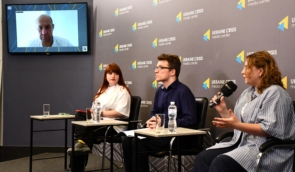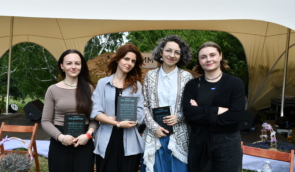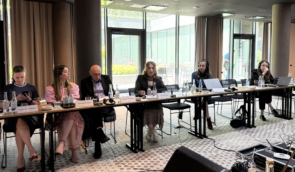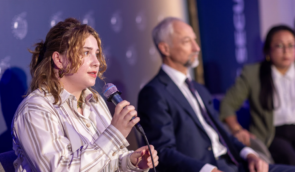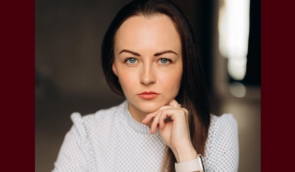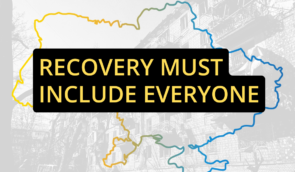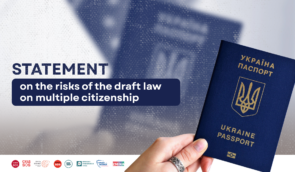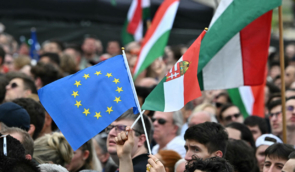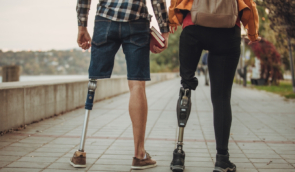Media professionals ask Ukrainian Parliament Commissioner for Human Rights Denisova to change the rhetoric of reports on sexual violence
Open letter to Ukrainian Parliament
Commissioner for Human Rights
Liudmyla Denisova
21/8 Instytutska Street, Kyiv-08, 01008
Regarding communication about sexual violence during the war
Dear Madam Commissioner,
We, Ukrainian women journalists and media professionals, are concerned and sometimes outraged by the rhetoric of reports on sexual violence during the war that are published on social media accounts of the Ukrainian Parliament Commissioner for Human Rights.
Rape is strictly prohibited by Article 27 of the Geneva Convention relative to the Protection of Civilian Persons in Time of War of 1949, so Russian war criminals must be punished. At the same time, reports on such crimes, especially committed against children and minors, should be published with caution.
Sexual violence during the war is a tragedy for families, a difficult and traumatic topic, not a subject for publications in the manner of a “scandal column”. We need to keep the goal in mind: to draw attention to the facts of crimes.
This information is spread in the media, sensitive words become clickable headlines, and public opinion leaders quote them in their blogs, during international cultural events organized to advocate for survivors, draw attention to the war in Ukraine and horrific crimes committed by Russians.
The media outlets respect official sources of information, such as you as an official and your Office. Therefore, any information disseminated on behalf of the Commissioner or her Office, in particular on social media accounts, is perceived by journalists as confirmed facts. In addition, it is usually impossible to verify the information related to the sexual violence committed by invaders in other sources. It is very important for this information to be really confirmed.
The official public communication about the children, who were sexually abused by the Russian military and then died, requires a forensic medical report. However, even if there is such, each word must be balanced and carefully selected.
The details of the crimes publicly disclosed draw public attention to the work of investigative bodies, the justice system; people demand investigations, trials, punishments.
Representatives of the law enforcement and judicial systems are limited by procedural prohibitions on sharing information about the progress of the investigation. Each case is carefully investigated, evidence is collected, and the personal data of survivors of sexual violence and witnesses are protected. Therefore, during your public communication, which is always in full public view, please indicate whether your Office submits files to investigators and prosecutors for further investigation.
When publicly communicating about sexual violence during the war (especially when children are affected), it is important to consider not only the ethical feasibility of the wording but also the justification and appropriateness of publishing certain details that may shock. For example, “Russians were raping a 6-month-old girl with a teaspoon”, “children were simultaneously raped orally and anally by two men” and “a nine-month-old daughter was raped with candlelight”.
It is crucial for the Commissioner, as an official, to take care of the rights and dignity of a survivor and his / her relatives. Therefore, it is crucial to adhere to ethical standards in the presentation of information, as the media continue to disseminate it in their own publications, preserving the original wording and publishing them for a wide audience.
Scoop, stigmatization, insinuations, and gore around human tragedies will not help us defeat the enemy and reveal the problem of sexual violence during the war.
We fear that the Ukrainian media may become just a platform for spreading “horrible details” about sexual violence during the war, instead of serving as a voice in support of gathering evidence in relevant criminal cases and fair punishment, and disseminating information about the services people, who experienced violence, may contact.
It is important to understand that sexual violence during the war is an instrument of genocide, an instrument of waging war without rules, but it cannot serve as illustrative material to induce the emotions of the audience.
We ask you, when providing information on sexual violence during the war, to:
- Disclose only the information with sufficient evidence; check the facts before publication
- Report on files you have submitted to the justice system
- Check and analyze every word to avoid sensationalism in the reports
- Avoid excessive detail of crimes
- Use correct terminology, for example, use the word “survivors” or “affected” instead of “victims”
- Take care of confidentiality and safety of survivors. Remember that survivors may be identified if they live in small towns or villages
- Indicate support networks (lawyers, human rights activists, professional psychological care).
- The tips “Sexual violence and the media. How to write about rape during the war” and the Recommendations of the Commission on Journalism Ethics on coverage of deaths during the war will also be of use
The letter is open for signing. If you want to sign it, please contact femida.help@gmail.com (indicate your first name and last name, the organization you work for, or your profession / status).
The letter was signed by women journalists and media professionals:
- Liza Kuzmenko, member of the Commission on Journalism Ethics, chair of NGO “Women in Media”
- Yelyzaveta Sokurenko, journalist at Human Rights Centre ZMINA
- Larysa Denysenko, writer, lawyer, human rights defender, radio presenter
- Khrystyna Semeryn, researcher, journalist
- Viktorya Yermolayeva, journalist at Hromadske Radio
- Tetiana Pechonchyk, member of the Commission on Journalism Ethics, chair of Human Rights Centre ZMINA
- Olena Horiacheva, journalist at SLM News LLC (ICTV and STB TV channels)
- Zoya Krasovska, media expert
- Yuliana Lozova, journalist
- Tetiana Stroy, media expert, journalist
- Oleksandra Horchynska, journalist at NV website
- Natalia Holodiuk, director of Rayon.in.ua news agency
- Tetiana Honchenko, freelance journalist
- Yaroslava Tsybulska, children’s rights activist
- Khrystyna Horobets, journalist
- Viktoriya Topol, editor-in-chief of educational media outlet “New Ukrainian School”
- Anastasiya Bahalika, presenter and editor at Hromadske Radio
- Diana Dutsyk, executive director of NGO “Ukrainian Media and Communications Institute”
- Olha Yurkova, media expert, journalist
- Yulia Hrytsenko, media manager, media expert
- Antonina Chundak, content manager, freelance journalist
- Iryna Andreytsiv, editor at liga.net
- Nina Korol, journalist at kolo.news
- Ruslana Kravchenko, presenter and editor at Hromadske Radio
- Tetiana Troshchynska, editor-in-chief of Hromadske Radio
- Iryna Nebesna, journalist, editor at TMTS.INFO
- Kamila Hrabchuk, journalist, producer at The New York Times
- Olha Reshetylova, coordinator of Media Initiative for Human Rights
- Hanna Uliura, literary critic, Candidate of Philological Sciences
- Oksana Maksymeniuk, head of legal department of NGO “Institute for Regional Press Development”
- Olha Dukhnich, journalist at NV magazine
- Olena Osmolovska, director general at “Law Review”
- Myroslava Makarevych, journalist, writer
- Tetiana Kurmanova, journalist, program director at Hromadske Radio
- Andiy Mokrousov, “Krytyka” publishing house, director and executive editor
- Marharyta Tulup, journalist
- Anna Khayetska, editor-in-chief of Wonderzine Ukraine
- Iryna Petrenko, journalist at LIGA.Life within LIGA.net
- Viktoriya Feshchuk, journalist, editor of Chytomo special projects
- Natalia Tolochko, journalist, professor of Journalism Department of Uzhgorod National University
- Kateryna Roshuk, co-founder and СЕО of Bukvy, owner of Reputation Security reputation management agency
- Vladislava Didenko, copy editor at #Bukvy online media outlet
- Aliona Savchuk, freelance reporter
- Iryna Lopatina, journalist
- Maria Zavyalova, journalist, editor
- #Bukvy editorial team (bykvu.com)
- Kristina Berdynskykh, journalist at NV
- Ksiusha Savoskina, journalist at hromadske
- Olesia Bida, journalist at hromadske
- Nastia Stanko, journalist at hromadske
- Lesia Pyniak, journalist at hromadske
- Viktoria Beha, deputy editor-in-chief of hromadske
- Zhenia Motorevska, editor-in-chief of hromadske
- Khrystyna Borovkova, media expert, misinformation analyst
- Olena Alchanova, columnist divoche.media; editor and copywriter, writer.
- Inna Moskvina, JSC “NSTU”, Suspilne, Pershyi TV channel
- Alla Maksymchuk, journalist at Journalistic Investigation Agency “Fourth Estate”, Rivne city
- Natalia Sokolenko, Ukrainian Radio
- Maryna Zharda, head of press center, Interfax-Ukraine news agency
- Iryna Siedova, journalist, human rights defender
- Svitlana Samoylenko, editor at Espreso TV channel
- Tetiana Bezruk, journalist
- Maryna Nikolayeva, editor at ATN (Kharkiv)
- Daria Hirna, journalist at Suspilne
- Iryna Slavinska, journalist
- Anastasia Lukashevska, journalist at 24 TV channel
- Olha Chayko, journalist
- Anhelina Kariakina, journalist, head producer of news department of Suspilne, co-founder of Public Interest Journalism Lab
- Kateryna Tolokolnikova, presenter at Radio Culture (Suspilne)
- Inesa Atamanchuk, journalist at JSC “MIG Newspaper”
- Natalia Humeniuk, journalist, founder of Public Interest Journalism Lab
- Svitlana Bondar, journalist, Odesa
- Maryna Liuta, journalist, editor at Kultura Radio
- Maryna Liuta, journalist, editor at Kultura Radio
- Anna Novozhylova, localization expert, editor, Kyiv
- Olha Bilousenko, journalist at Detector Media
- Anastasiya Hudyma, editor, producer, Suspilne Broadcasting (Coordination Center for National Communities Broadcasting)
- Natalia Slipenko, translator, editor, Kyiv city
- Tamila Ivanova, journalist at Suspilne Kherson
- Yulia Danylenko, journalist
- Aliona Romaniuk, media expert, fact checker at Nota Yenota
- Olha Padiriakova, editor-in-chief of ZMINA online media outlet
- Anna Slutskaya, journalist, chair of Charity Foundation “Volia”, Uman town
- Tayisiya Herasymova, communications manager at Charity Foundation “Insight”, Women’s March initiative
- Oksana Pavlenko, editor-in-chief of Divoche.media
- Anna Ovcharenko, acting director general of TV-7 TV and Radio Broadcasting Company LLC, Mariupol city
- Maryna Kuraptseva, journalist at Dom TV channel
- Natalka Sirobab, journalist at Kolo.news
- NGO “Detector Media”
- Natalia Lyhachova, head of NGO “Detector Media” and editor-in-chief of group of websites “Detector Media”
- Svitlana Ostapa, deputy editor-in-chief of group of websites “Detector Media” , head of supervisory board JSC NSTU “Suspilne”
- Olha Dukhnich, journalist at NV magazine
- Olena Osmolovska, director general at “Law Review”
- Myroslava Makarevych, journalist, writer
- Tetiana Kurmanova, journalist, program director at Hromadske Radio
- Andiy Mokrousov, “Krytyka” publishing house, director and executive editor
- Marharyta Tulup, journalist
- Anna Khayetska, editor-in-chief of Wonderzine Ukraine
- Iryna Petrenko, journalist at LIGA.Life within LIGA.net
- Viktoriya Feshchuk, journalist, editor of Chytomo special projects
- Natalia Tolochko, journalist, professor of Journalism Department of Uzhgorod National University
- Kateryna Roshuk, co-founder and СЕО of Bukvy, owner of Reputation Security reputation management agency
- Vladislava Didenko, copy editor at #Bukvy online media outlet
- Aliona Savchuk, freelance reporter
- Iryna Lopatina, journalist
- Maria Zavyalova, journalist, editor
- #Bukvy editorial team (bykvu.com)
- Kristina Berdynskykh, journalist at NV
- Ksiusha Savoskina, journalist at hromadske
- Olesia Bida, journalist at hromadske
- Nastia Stanko, journalist at hromadske
- Lesia Pyniak, journalist at hromadske
- Viktoria Beha, deputy editor-in-chief of hromadske
- Zhenia Motorevska, editor-in-chief of hromadske
- Khrystyna Borovkova, media expert, misinformation analyst
- Olena Alchanova, columnist divoche.media; editor and copywriter, writer.
- Inna Moskvina, JSC “NSTU”, Suspilne, Pershyi TV channel
- Alla Maksymchuk, journalist at Journalistic Investigation Agency “Fourth Estate”, Rivne city
- Natalia Sokolenko, Ukrainian Radio
- Maryna Zharda, head of press center, Interfax-Ukraine news agency
- Iryna Siedova, journalist, human rights defender
- Svitlana Samoylenko, editor at Espreso TV channel
- Tetiana Bezruk, journalist
- Maryna Nikolayeva, editor at ATN (Kharkiv)
- Daria Hirna, journalist at Suspilne
- Iryna Slavinska, journalist
- Anastasia Lukashevska, journalist at 24 TV channel
- Olha Chayko, journalist
- Anhelina Kariakina, journalist, head producer of news department of Suspilne, co-founder of Public Interest Journalism Lab
- Kateryna Tolokolnikova, presenter at Radio Culture (Suspilne)
- Inesa Atamanchuk, journalist at JSC “MIG Newspaper”
- Natalia Humeniuk, journalist, founder of Public Interest Journalism Lab
Women human rights defenders, lawyers, therapists, teachers, NGOs:
- Olha Korniushyna, PhD, author of the book “37 Buddhist Tricks”
- Kseniya Talalay, communications manager, culture manager
- Renata Kaletova, financial analyst, Prague
- Yana Dubynianska, writer
- Kamilla Kostenko, marketing and communications consultant
- Zlata Symonenko, lawyer, adviser at Law Firm “Sayenko Kharenko”
- Volodymyr Sushchenko, honoured lawyer of Ukraine, legal research adviser at Razumkov Center
- Olha Antonenko, teacher at secondary school No.291, Kyiv city
- Oksana Matviyuk, bank employee
- Anastasiya Lisova, education manager
- Dmytro and Natalia Romankos, NGO “Black Swans”
- Natalia Pashko, sexual abuse therapist
- Nadia Volkova, lawyer, chair of NGO “Ukrainian Legal Advisory Group”
- Kateryna Zuyeva, deputy head of accounts department at Windrose aviation company
- Yulia Stepura, psychiatrist
- Diana Busuyok, therapist
- Iryna Fedorovych, director of NGO “Social Action Center”
- Hanna Lutvynova, human rights defender, lawyer at NGO “Insight”
- Olha Tymchenko, head of social communications department at the Institute of Information Security
- Ketryna Voronkevych, IT specialist
- Oleksandra Pidhayevska, practical psychologist
- Anna Pykhtina, communications manager
- Yaryna Vyshenska, co-founder of Charity Foundation “Strong”, head of nudge creative agency
- Nadia Volchenska, co-founder of Charity Foundation “Strong”, therapist
- Anastasiya Krasnoplakhtych, communications coordinator Charity Foundation “Strong”, communications manager
- Natalia Trushyna, therapist, supervisor at All-Ukrainian Union of Psychologists Practicing the Gestalt Approach
- Svitlana Tarabanova, children’s rights expert, Women’s Consortium of Ukraine
- Alla Koriavets, English language professor
- Vitalina Maslova, artist, art therapist, author of technique “art rehabilitation”, founder of Charity Organization “International Charity Foundation “Art Kryyivka”
- Oleksiy Lazarenko, Vice-President of All-Ukrainian Foundation for the Protection of Children’s Rights
- Nadia Hordiyenko, therapist
- Yulia Vodko, law student
- Vitaliya Lebid, advocate, lawyer at Center for Strategic Affairs of the Ukrainian Helsinki Human Rights Union
- Kateryna Pokhodenko, designer, postgraduate student at Kyiv National University of Culture and Arts, expert on accreditation of educational programs at National Agency for Higher Education Quality Assurance
- Oksana Tomchuk, lawyer, chair of NGO “Sich” Human Rights Protection Group
- Oleksandr Volchanskyi, photographer
- Anastasiya Zaremba, clinical psychologist
- Liudmyla Yutskevych, enginner, student of Michigan Technological University master’s program
- Alisa Novichkova, international advocacy manager at Ukrainian Helsinki Human Rights Union та Human Rights House Crimea
- Khrystyna Kit, lawyer, head of NGO Ukrainian Women Lawyers Association “JurFem” and the whole “JurFem” team
- Oksana Rymareva, medical psychologist, All-Ukrainian Center for Comprehensive Rehabilitation of Persons with Disabilities
- Tetiana Sikachovska, French language professor
- Darya Andreyeva, activist, consent culture researcher
- Artur Sumarokov, film critic and playwright
- Valeriya Paliy, president of the National Psychological Association, a psychological association that unites more than 1,000 psychologists across Ukraine. In early May, the NPA’s Ethics Commission developed guidelines for psychologists, public figures, and the media on how to cover sensitive topics. Text: https://www.npa-ua.org/_files/ugd/86d9b8_ea36762945a840c29c1de53b7ea5a232.pdf
- Olena Datsenko, psychologist
- Alla Morozova, head of legal department of SE “Ukrservice of the Ministry of Transport”
- Irena Trytiak, professor
- Viktoriya Panina, information security expert, radiophysicist, co-founder of the Charity “Foundation for the Promotion of the Nation’s Health”
- Marharyta Fadeyeva, psychotherapist, member of the Ukrainian Union of Psychotherapists and the Ukrainian Association of Specialists for Overcoming of Psychological Traumatic Events
- Yana Pekun, gender equality and social inclusion expert and consultant
- Nadia Shyriy, psychologist, cognitive behavioral therapist, private practice
- Olha Shcherbakova, lawyer, member of the gender policy committee of the National Bar Association of Ukraine
- Anna Semenchuk, QA engineer
- Maria Kurinna, women rights defender, former diplomat, international advocacy managet at “Human Rigths Centre ZMINA”
If you have found a spelling error, please, notify us by selecting that text and pressing Ctrl+Enter.

